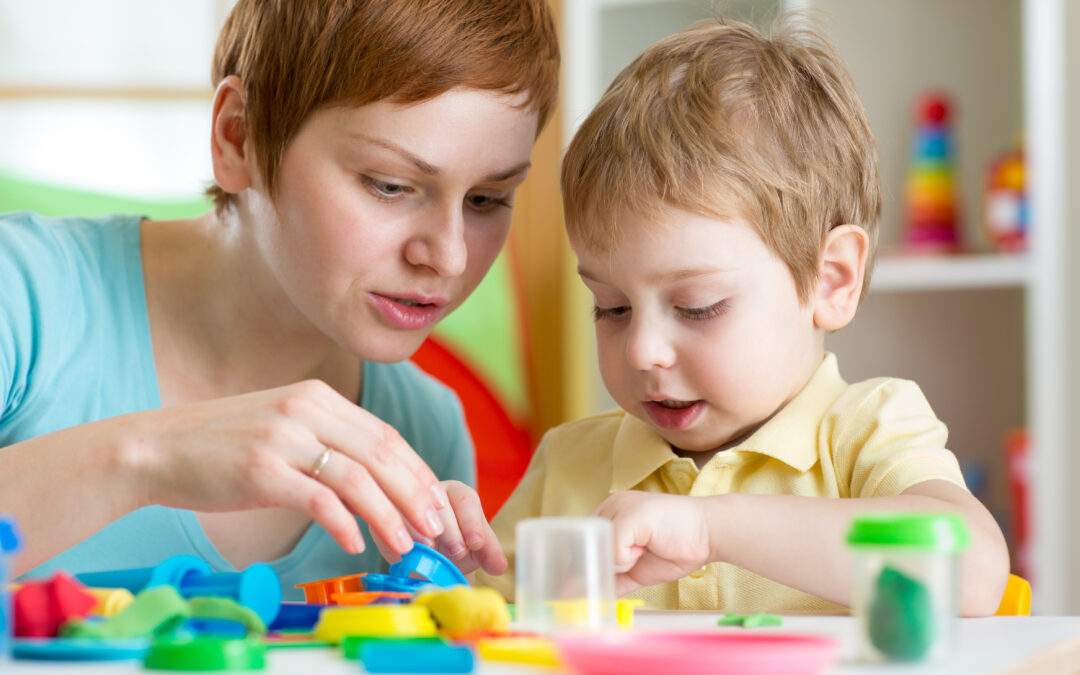Your child’s creativity is like a muscle – the more it is worked, the better and stronger it becomes. Here, the early childhood development professionals at Celebree School explain what you can do to encourage creativity in your toddler.
While some children may be more naturally creative than others, creativity is a skill that can be practiced and fostered with time. Unfortunately, many conventional forms of children’s play do not promote creativity – in fact, they diminish it. Television programs, video games, action figurines, and many other toys provide preconceived characters, plots, concepts and images for children, instead of encouraging children to develop their own. While these forms of entertainment are not inherently bad, they should be heavily offset by other forms of play and fun that promote creative thinking.
Creativity is not just beneficial from an artistic point of view – although it does wonderful things for developing a child’s sense of artistry and unique style. Developing creativity is also important for problem solving and critical thinking, and helps children to develop science, math, social and emotional comprehension. Further, creativity can help boost a child’s confidence in their ability to face the challenges in all facets of their world. Thus, helping your child to develop their creativity early in life can provide substantial benefits for years to come.
Below are several suggestions for promoting your child’s creative development:
Allow time for unstructured play
Many children are shuttled from school to activities to playdates and back again, with little time for unstructured play. Providing children with opportunities to just be—to think and act out on their thoughts independently—is important to their creative development.
How can parents facilitate this time? Give children a space designated for creative play: a basement room for building forts, a corner of the kitchen for arts-and-crafts or a spare bedroom for dress-up. Decorate these spaces with the results of their creativity. Also, provide the raw materials: art supplies, cardboard boxes and other building materials, as well as unused clothes for costumes, all make for hours of creative play.
Provide a foundation for creative thought
Talking to your child and asking them thoughtful questions is deeply important in several ways, and for fostering creativity is no exception. You are your child’s first teacher, so talk to them about famous historical figures, your career, current events: whatever they find engaging and thought-provoking. When facing everyday problems, ask them to come up with several solutions, and challenge them to think of various routes to get to one solution. Give children time to think and encourage them to ask questions. If they disagree with you or someone else, let them explain why, and try to limit external constraints on their thought: this can discourage children, and force them to think in prescribed, non-creative ways.
Celebrate creativity without incentivizing it
It is wonderful to be proud of something creative your child has accomplished, but the focus should be on the process, not the results. Asking questions such as, “Did you have fun?”, “What did you like about that activity?”, and “How would you do it differently next time?” stimulate more future creative thought from your child. Making creative play reward-based can lessen the quality of creative thought, so try to limit your influence on what activities they pursue: not every child will become a skilled violinist, bilingual or a master sculptor. If your child prefers building and constructing over dress-up and acting, let them spend their time building castles and spaceships. The type of creativity is less important than quality and amount of creative time spent.
At Celebree School, we foster your child’s creativity by providing a warm, accepting atmosphere that allows for unstructured play and creative thought. If you are interested in an educational and fun program for your infant, toddler, preschooler or school-age child, we encourage you to contact us today!

